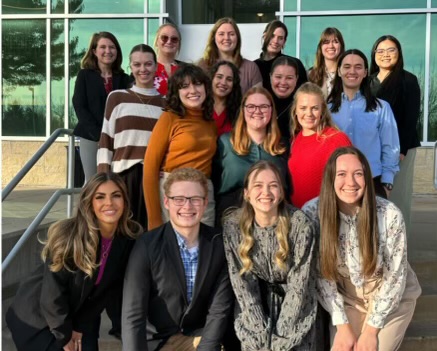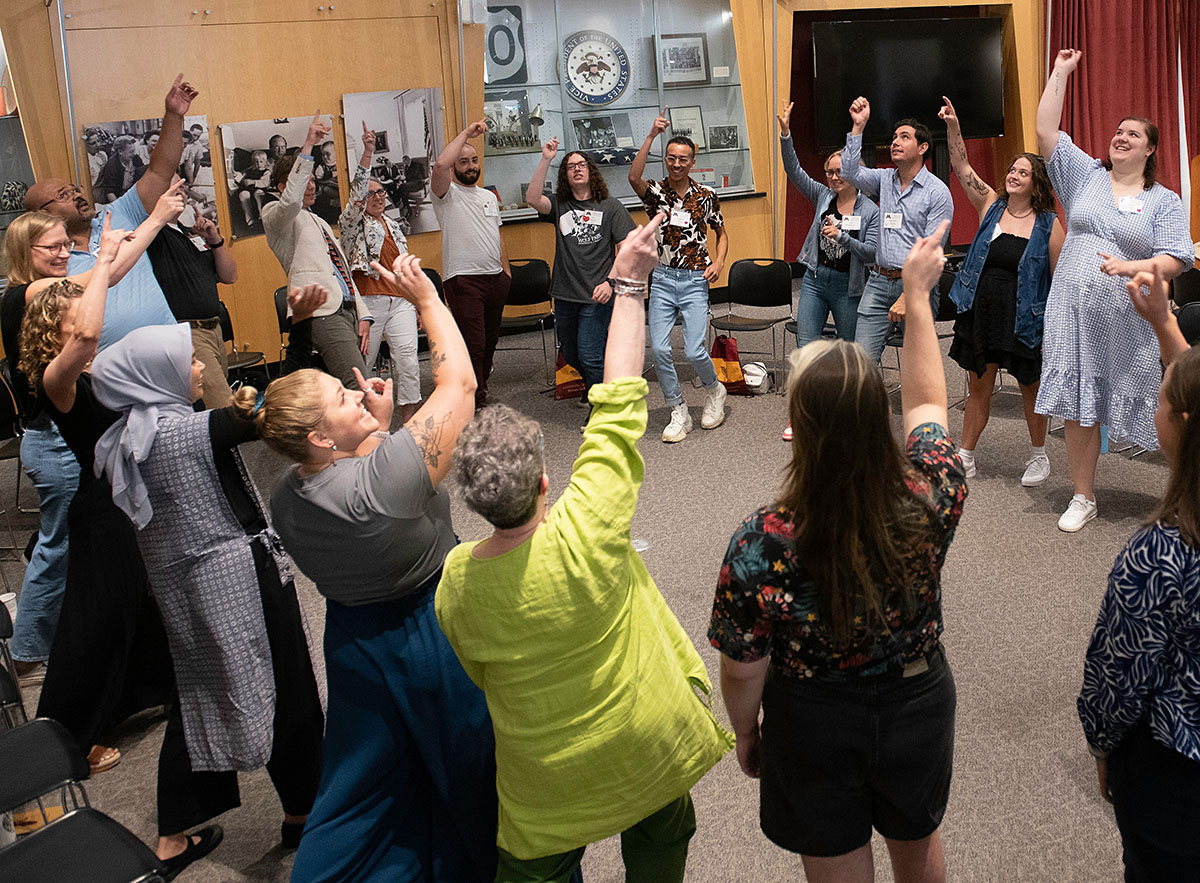The University of Minnesota’s Animal Welfare Judging Team is composed of undergraduate, graduate and veterinary students who compete every November at the Intercollegiate Animal Welfare Judging and Assessment Competition.
Students learn how to assess the welfare, health and behavior of animals in a variety of settings using science-based methods and reasoning, and gain course credit for competing.
Courtney Archer, an animal science doctorate student and assistant coach, said there are two parts to the competition.
“The first part is called the ‘live assessment,’ where they put students in front of live animals and you do a real-time assessment of them,” Archer said. “The second part of the competition is more of a general assessment.”
For the live assessment, team members assess animals in front of judges and explain why the animal has good welfare, Archer said. The competition identifies four species, and teams get PowerPoints with different scenarios about how each group is raised.
The team studied farmed bison this past year.
“For example, we had bison from Farm A, and they gave us information about how the farm runs and manages health, nutrition and housing,” Archer said. “Then, we would compare that to Farm B and based on the information provided, we decide which farm has better welfare overall.”
Kristin Soucek, who competed on the team as an undergraduate, said to prepare for the competition each year, the team will learn everything they can about the four given species and create a guide with citations to help them.
Soucek said the team has three minutes to deliver their reasons for which farm is better and are judged on whether they chose the right scenario and if their reasoning was valid. Students take a prerequisite course called Animal Welfare & Ethics and are invited by Rielle Perttu, the professor and head coach, to join the team since spots are limited.
Madi Bacon, an animal science doctorate student and assistant coach, said a typical week on the team involves a lot of research into a specific animal or area.
“For me, I was doing a lot of checking work, making sure our students were finding the things they needed to be finding for our guides,” Bacon said. “We also had students give us their reasoning in writing a few times, and I would tell them what they were doing well and what they needed to work on.”
Bacon said she and the other coaches would find practice scenarios and set them up for students to perform and get feedback on.
According to Soucek, the team would go over their research and deliver it to their teammates before the competition and practice like it was the competition.
Bacon said the team also goes on field trips throughout the semester to visit the animals who would be part of the competition that year.
“There were definitely some weeks during the semester where we’re all piling into vehicles and driving out a few hours to go visit a bison farm or the Minnesota Zoo where we can learn about the animals and see them up close,” Bacon said.
According to Bacon, the team has given her more of a community within the field of animal welfare science.
“One of the most valuable things about this competition is that it’s a very friendly competition, and we are all very supportive of one another,” Bacon said.
Archer said students competing are given a good understanding of animal welfare as a whole, no matter what species they are given.
“Welfare is a new up-and-coming concept because consumers are having a lot more say in how we raise our animals,” Archer said. “So, for our undergrads, I think it really benefits them because it gives them a solid foundation they can use in practically any animal-related job.”














